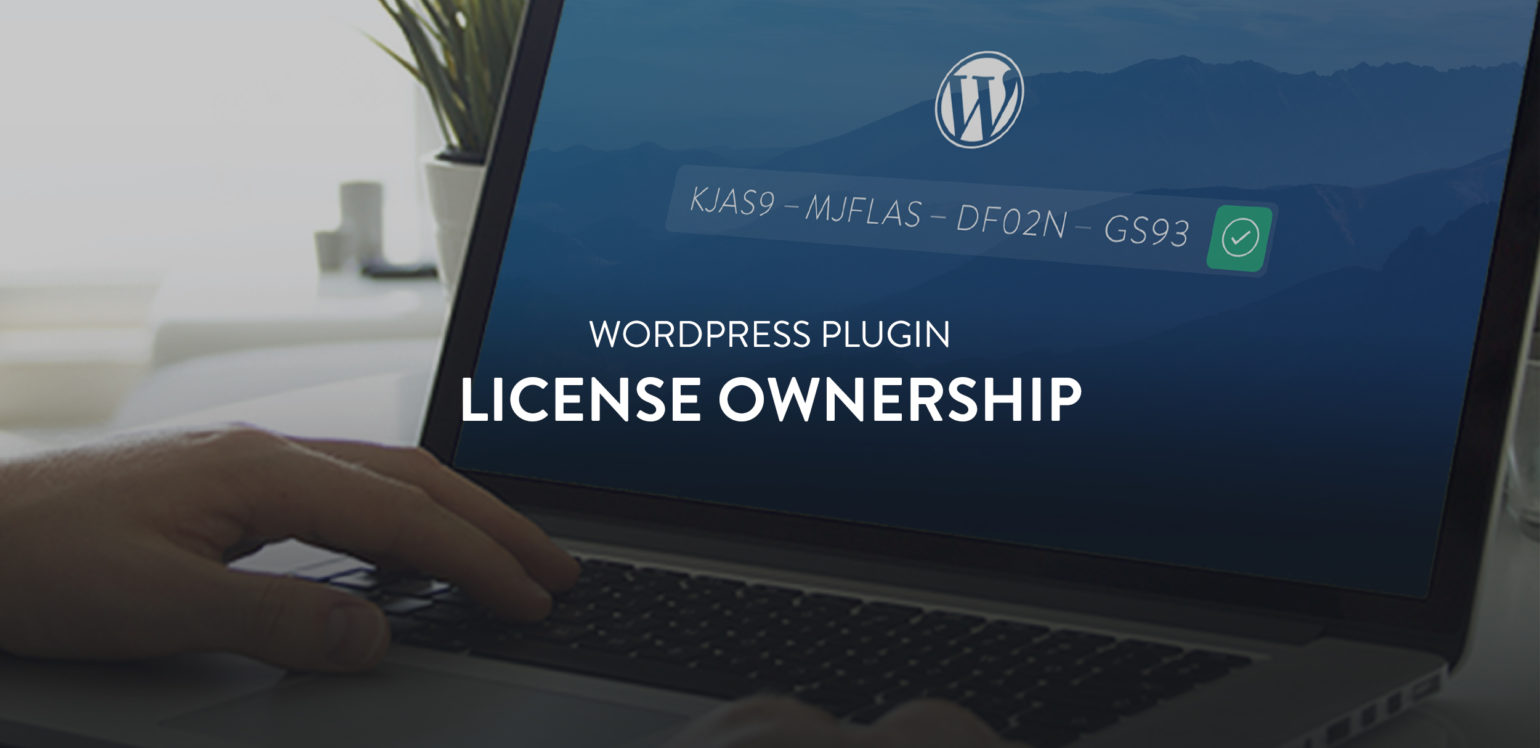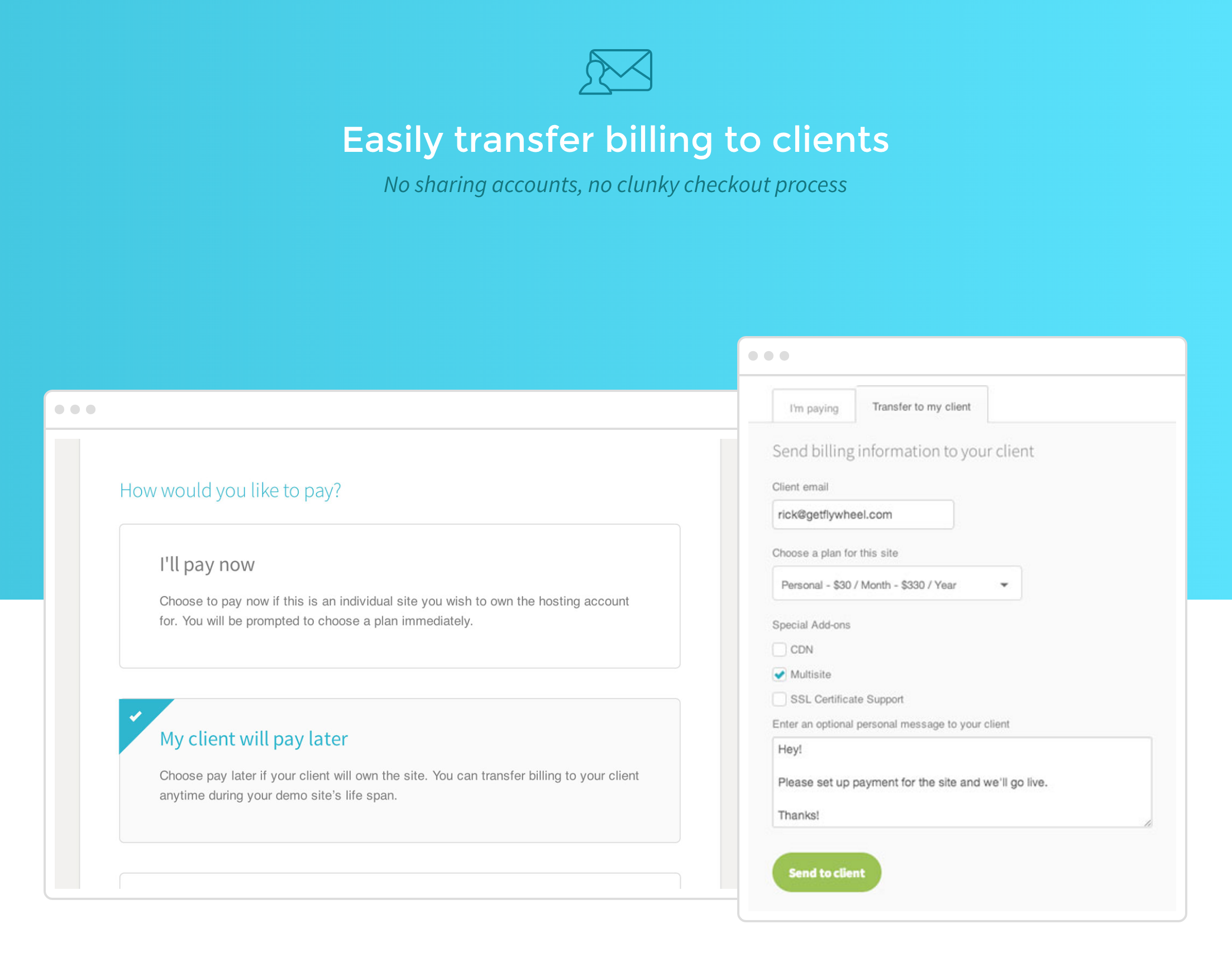
Before we get into this I want to say that WP Migrate DB Pro doesn’t really apply here. It’s a developer tool so the developer should own the license, not the client. A carpenter should own their own hammer. Our other plugin, WP Offload S3 definitely does apply here though. Ok, now back to the show…
Just the other day I had a tennis match with a local business owner. He was telling me about the ordeal he was going through to get control of his domain name. Once upon a time, he had hired a developer to build his site. The developer had used his own details (including email address) when registering the domain name. And now he couldn’t reach the developer. He tried contacting the registrar but they wouldn’t give him control of the domain name (and rightly so).
I’ve heard similar stories involving WordPress plugins. Client hires developer. Developer adds a paid plugin to the site during development and uses their “Developer” (unlimited sites) license. Developer doesn’t renew their license and the client isn’t able to update the plugin. Worst case scenario: the client never updates the plugin and eventually it breaks the site or the site gets hacked. Best case scenario: the client is angry because they need to buy a new license to update the plugin but they grind their teeth and hit “Complete Order”.
If a paid plugin is integral to the site, the client should be the owner of the plugin license. They should get a bill every year (or however often) for the license renewal and should have to pay that bill to keep the software up-to-date and have access to support.
The main argument I’ve heard against this is that clients aren’t willing to pay for a plugin license. But that sounds like communication failure to me. The client needs to understand that the cost of the plugin license is the cost of the features it brings to the site. What would it cost to develop the features from scratch? And what about all the bugs that come with developing something new? If the features aren’t worth $59 per year for them, then maybe they don’t need them after all? Most clients are fine with paying for a plugin license as long as it’s clearly communicated as part of the proposal at the beginning of the project and the recurring cost is made clear (i.e. there are no surprises).
Of course there will be clients that have an archaic software procurement process. They have to fill out forms and bounce them between half a dozen departments for approval, and oh, did they mention they’re NET 45. Yeesh!
But hey, that’s why you have a “Developer” license. Use it to work on the site but make sure to swap the client’s license in later. And even if you forget to swap it in, at least you’ve set the client’s expectations that this is a license they need and they need to renew annually. If they run into trouble with the plugin in the future, they’ll have a license for the plugin that they own, and access to updates and support; everything they need to resolve the problem.
I know what you’re thinking: “Procurement? This doesn’t sound like my clients, this doesn’t apply to me.” Wrong. You missed the point. This is about expectations. Your clients may not have a procurement process but they definitely do have expectations and if you don’t skillfully manage their expectations you’ll end up with very little repeat business.
So please, next time you take on a new project figure out what paid plugins you’re going to use, put those in your project proposal with first year costs and future annual cost. And be clear about who’s covering the first year cost (you or the client), who will actually purchase the plugins, and what date they are needed by. And even if you are covering the first year cost, please please please replace your billing address and email with the client’s once you’ve completed your purchase. Otherwise they won’t get an email at renewal time.
As a company that sells plugins we could certainly be doing a better job encouraging developers to have their clients own plugin licenses. For example, after purchase we could prompt the customer, “Will you be handling renewals for this license?” and show a form to update the billing contact. Or we could borrow Flywheel’s idea and allow our customers to create a URL to send to their clients to pay for the license themselves. I’ve never used Flywheel hosting but I absolutely love the way they allow their customers to pass on billing to their clients.

While I love the idea and do plan to implement it at some point, it just hasn’t topped our list of priorities yet. For now, our customers have to instruct their clients on how to purchase a license or buy the license themselves, bill their client, and then update the billing information on the account so that the client gets future renewal emails. Far from ideal, but it works ok.
How do you handle plugin licenses for your clients? Do you let them use your “Developer” license or have them buy their own license? What’s your process? Please share in the comments.